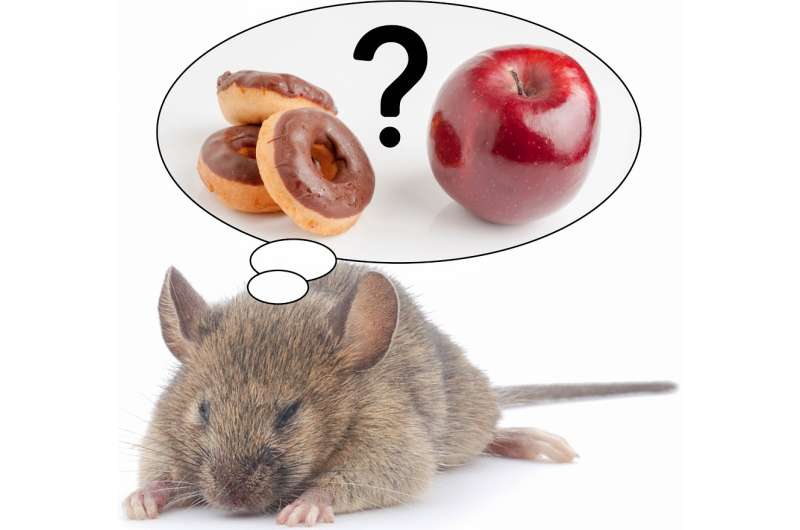Direct link between REM sleep loss and the desire for sugary and fatty foods discovered

The researchers at the University of Tsukuba's International Institute for Integrative Sleep Medicine (IIIS) used a new method to produce REM sleep loss in mice along with a chemical-genetic technique to block prefrontal cortex neurons and the behaviors they mediate. As a result, the IIIS researchers discovered that inhibiting these neurons reversed the effect of REM sleep loss on sucrose consumption while having no effect on fat consumption.
It is not well understood what role sleep loss plays in affecting areas of the brain that control the desire to consume unhealthy foods. A new paper published on December 6 in the journal eLife finds that rapid eye movement (REM) sleep loss leads to increased consumption of unhealthy foods, specifically sucrose and fat. The researchers at the University of Tsukuba's International Institute for Integrative Sleep Medicine (IIIS) used a new method to produce REM sleep loss in mice along with a chemical-genetic technique to block prefrontal cortex neurons and the behaviors they mediate. As a result, the IIIS researchers discovered that inhibiting these neurons reversed the effect of REM sleep loss on sucrose consumption while having no effect on fat consumption.
REM sleep is a unique phase of sleep in mammals that is closely associated with dreaming and characterized by random eye movement and almost complete paralysis of the body. The prefrontal cortex plays a role in judging the palatability of foods through taste, smell and texture. Moreover, persons who are obese tend to have increased activity in the prefrontal cortex when exposed to high calorie foods. "Our results suggest that the medial prefrontal cortex may play a direct role in controlling our desire to consume weight promoting foods, high in sucrose content, when we are lacking sleep," says Kristopher McEown, the lead author on this project.
More information: eLife, DOI: 10.7554/eLife.20269.001



















